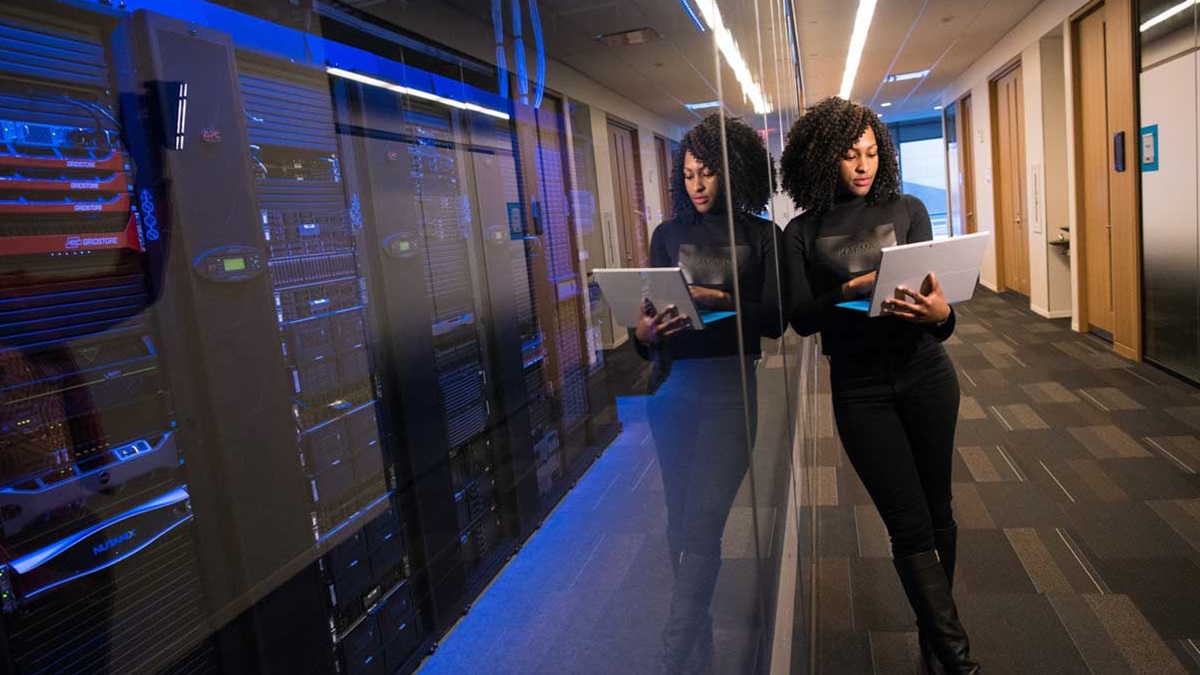“People see me now, and they just assume, ‘oh, she had it easy,'” she says, but Rose Ferreira has had it anything but easy. The trajectory of her life has been so turbulent, in fact, that NASA, her previous employer, published a feature article about her determination on its website. That story chronicles her journey from a poverty-stricken childhood in the Caribbean and years living unhoused, to pursuing her education and rising to become a NASA intern, which ultimately led to working at the space agency full-time.
In January, that article vanished from NASA’s website. As an onslaught of executive orders and directives signed by President Donald Trump sent federal agencies into a frenzy of program cancellations and mass layoffs, NASA’s acting administrator Janet Petro began aligning the agency with the White House’s new laws of the land. That included eliminating any office or program associated with diversity, equity, inclusion and accessibility (DEIA) initiatives.
NASA promptly began firing employees affiliated with such efforts and implemented a freeze on all pending hires. The agency also started systematically purging its websites of any instances highlighting diversity and inclusion. Within three days of Trump’s inauguration, NASA’s website for the Office of Diversity and Equal Opportunity (ODEO), its associated pages and any agency page with mentions of DEIA, women in leadership, indigenous peoples, or environmental justice started being removed from the internet. NASA removed language on its Artemis program pages that referenced the agency’s commitment “to land the first woman, and first person of color” on the moon as a part of its Artemis 3 mission — language NASA adopted under Trump’s first administration, and a goal the agency had promoted time and again. The erasure also included a 2021 graphic novel about a Hispanic woman and her diverse astronaut crew’s launch to the lunar surface. On Feb. 6, Ferreira learned NASA’s piece about her had been removed with the rest.
“It’s something that I anticipated was coming,” Rose Ferreira, 39, told Space.com. Still, she said, “it did feel like a slap in the face … it feels like everything that I worked for has been taken down little by little.”
Taken down
Ferreira was in the hospital recovering from pneumonia when she found out NASA’s feature about her had been removed. (It’s back now, but we’ll get to that.)
A school teacher contacted her to ask about the missing page, which many teachers have used as part of their classroom STEM (science, technology, engineering and math) presentations. “As soon as I found out, I just cried. I wasn’t expecting that, to be honest,” Ferreira said. “I was really weak from being sick … it just felt like the punching just kept coming.”
Since the beginning of the second Trump administration, many in Ferreira’s circle at NASA have feared losing their research funding, or even their jobs, due to changes directed by the White House. “People are feeling a little more protective now,” Ferreira said, “like they have to watch what they say, and around who.” The removal of the NASA article and similar pages sent a clear message to Ferreira and others:
“We’re not welcome,” she said.
“My dream was never to work at NASA. I just love space, and I wanted to be in science, so I did anything I could to do that. But once I became an intern at NASA, I realized how much I love it. I have an emotional attachment to NASA.” Ferreira’s first NASA internship was in 2022, at the Goddard Spaceflight Center in Greenbelt, Maryland, where she began meeting people as passionate about space and science as she was.
“If you have people like that — people who are talented, people who work so hard to be a part of it, who want to come in and work for the future of NASA — and you’re basically sending out the message, ‘this is how easy it is for us to erase you. You’re not really welcome here right now.’ Then what are you doing exactly? You’re just keeping talent out and you’re dehumanizing people at the same time.”
Ferreira described the new environment at NASA as tense. People began to fear that contributions to their respective fields may be disregarded on the assumption they didn’t deserve their role if a DEIA program may have played a part in them getting it.
“You don’t just trip and stumble upon these [kinds of opportunities],” she said. “People don’t understand that DEI was created so people like me don’t get pushed out, or just kept out.”
“Some of us work so much harder for the same things,” Ferreira said. “I cannot even take a shower without being grateful for the water, because I didn’t grow up with running water.”
NASA’s feature on Ferreira only scratches the surface of the hardships she faced before reaching her position at the agency. “I understand not everyone wants to hear about hardships,” Ferreira said, though she wonders whether the purpose of highlighting difficult stories gets lost when they’re diluted for the sake of palatability. She said she once turned down a book deal because the publishers also attempted to polish her story by skipping some of its most difficult parts.
Ferreira works hard on softening her accent in the U.S. because once someone hears it, “people always treat me like garbage,” she said. She emphasizes, however, that such vitriol comes from both sides of her cultural divide. In the U.S., she explained, people see a successful woman with a career in STEM, multiple NASA listings on her resume, and assume her path to success was easy. She says people from her country see her in a similar light, but through a different lens. They think she’s had it easy as well. “You’re both wrong,” she said.
Read Full Story – https://www.space.com/space-exploration/nasa-celebrated-this-employees-story-of-resilience-then-tried-to-scrub-it-from-the-internet-then-fired-her




















